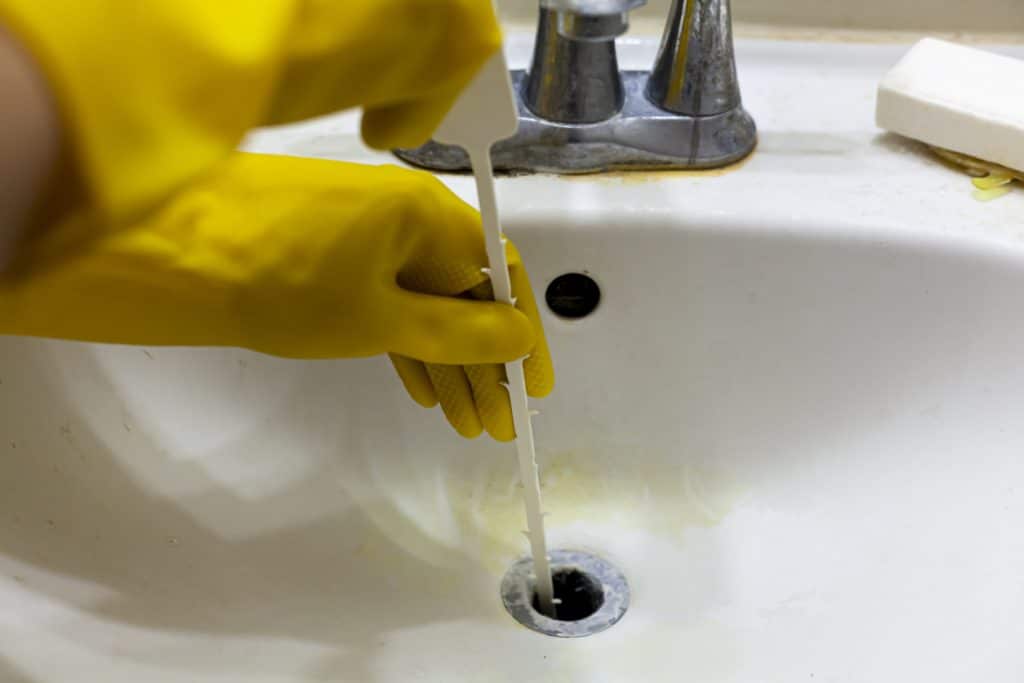We know that by the time a homeowner calls our experienced plumbers for help clearing a drain, they’ve usually exhausted all common-sense options, including using a plunger or a mild chemical cleaner. In some cases, the problem isn’t the drain pipe but the waste disposal system. Far too often, we receive a call after expensive damage has already occurred.
This guide explores our top tips for preventing these types of events with a few simple and safe do-it-yourself practices.
Collect Grease and Oil in a Container
When you pour grease or oil down a sink drain, it adheres to residue that’s already-present in the interior of the pipe, such as food particles. Hot water melts grease and oil, but these sticky substances cling just enough to bind together the debris and create a hardened material when cool.
All foods release oil to some degree. You can minimize the buildup by pouring boiled water down the drain once a week. That said, you need to dispose of larger volumes of grease and oil appropriately. For these substances, you merely need a simple jar with a lid. You can pop the material out of the container after it hardens and throw it in a sealed bag with other food waste.
Dispose of Waste Appropriately
Many people don’t realize that pipes have bends where food can become stuck and that a garbage disposal can stick and overheat when exposed to hair, grease, oils, and certain types of fibrous and stringy foods. Bones, coffee grounds, eggshells, onion peels, and meat can become stuck. Even extremely tiny pieces of starchy foods, such as pasta, potatoes, and rice, can quickly break down into a sticky mess that attracts particles and builds up. Anything that might damage the pipes through a chemical reaction, such as nail polish, acetone, and paint, can erode seals and pit a pipe’s interior.
It’s important that you dispose of different types of waste using methods recommended by experts. Always use a two-in-one sink strainer and stopper to prevent clogs from food and other objects. If you’re worried about food causing odors or attracting pests between trash pickups, refrigerate the waste in a sealed container until you’re ready for trash day.
Stick With Mild Natural Solutions
As previously noted, harsh cleaners for maintenance and clearing away clogs can corrode pipes and seals. Although many consumer-grade clog-clearing products exist, the formulations often contain extremely harsh chemicals that can cause small pinholes and medium-sized breaches that eventually widen and lead to foul-smelling leaks and backed-up systems.
To avoid these issues, pour a cup of heated vinegar down the drain once a week and leave it for 10 minutes. The mild acetic acid lightly breaks down grease and oils as well as mineral buildup. Once the time passes, flush the pipes with the previously mentioned boiling water.
Pick the Correct Drain Cleaning and Clearing Options
Although many professionals in the industry never make DIY recommendations, we know that excellent drain maintenance requires homeowners to perform some basic do-it-yourself actions between professional visits. We also know that sometimes a client can’t fix a drain problem without our help. For more information or to schedule a drain cleaning or overall maintenance appointment, contact our plumbers at Select Plumbing in Lincoln, NE.



